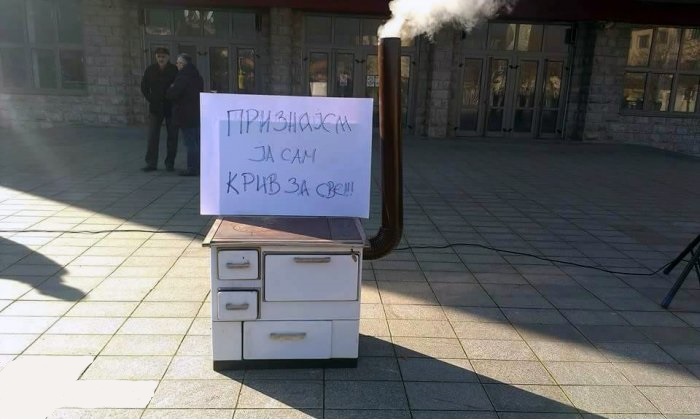Can you afford a sufficient amount of firewood for the winter, or do you at least have enough money to pay the bills for good enough heating, electricity or gas? If so, then you are not impacted by energy poverty. Let’s do a survey – ask people if they have “enough” to be “sufficient”; and if they don’t, count them as being in the state of energy poverty and we’ll get basic information on the prevalence of this phenomenon. Easy; the first problem – solved.
Survey interviewer asks the question. Respondent scratches his head… “So, say, how much wood is enough? Heating a two-story house and keeping it warm, ’round 20 degrees? Hmm, maybe, if we cut the food budget a bit. And one of the children could skip the school trip this time, they’re supposed to go for a mountain hike anyway, everyone’s saying air is clean and good out there… Well, I say nevermind, with a strong breeze, it can be pretty clean ’round here as well. Though usually, the throat can feel a bit itchy. Plus this furnace we have here is fuming and having hiccups as it’s swallowing wood like crazy. It also sucks in cool air from the outside as it’s burning and smoke’s coming back into the house, too. Well, whatcha gonna do, no oxygen – no fire, that’s what they thought me in school anyway.”
“Sufficient” is not an accurate description in this case. When you have “enough” to be “sufficient” you should be able to provide for other things necessary for a healthy and comfortable life without social exclusion. Healthy food, medical services, clothes, shoes, books and movies, recreational activities – you need money for it. That’s at least 5 reasons good-enough to trigger the change.
Now, money is just a part of the solution. When, as most of Europe does, including us, you financially aid vulnerable groups energy-wise, their electricity/gas bills are partially covered. However, when it comes to the rest of those “good enough’s”, you haven’t really done much. If you replace smoke spilling stove with the efficient one or opt for one of those furnaces that work according to German standard (this is regulated mostly everywhere except in Serbia), or a good inverter air conditioning device in a well-insulated room where electricity supply is good enough, you could cut energy expenses 2 to 9 times. Two to nine times. That’s much better. That might leave you with enough money so that you don’t even need the help of the state. And enough heat. And those school trips. And probably solve our respondent’s family problem permanently.
Let’s make a mental note to ourselves – the energy poverty problem can be tackled from the energy efficiency point of view. And let’s not forget that regulations concerning heating devices play an important role.
That’s ‘Enough’ for today.
Aleksandar Macura, Programme director, RES Foundation
This text was originally published here.

